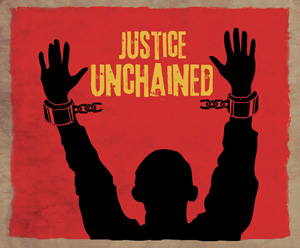![The God of Free Grace]()
by Steve | May 14, 2013 | Magazine Articles, May-June 2013

By Andrew Thomspon
Is salvation available to all God’s children?
For many people, that seems like a no-brainer. Of course it is! But it’s also a question that has been long debated in the history of the church. Many people both past and present have concluded that salvation is not, in fact, available to all people. They believe God has predestined only some to eternal salvation. Those who have found favor in God’s sight are the “elect.” Others God has chosen not to save, and thereby consigned to an eternity without God in hell. Such people are known as the “reprobate.”
It seems harsh to think that God would create some people for the purpose of damning them. But there are some biblical reasons for thinking that this is exactly God’s plan. Think about the great story of Israel in the Old Testament: God’s chosen people, just a small nation out of all the peoples of the world. And of course, the Church is a continuation of the story of Israel. Those whom Jesus Christ has called to be a part of his body have been grafted into the tree of Israel–like wild olive shoots! (See Romans 11:13-24). Yes, Gentiles are now a part of God’s people. But being a part of God’s people is still a special calling.
And then there are the passages in the Apostle Paul’s Letter to the Romans which speak of God predestining those whom he foreknew for salvation (Romans 8:29-30). Doesn’t that suggest that some are chosen to be saved and others to be cast out–and isn’t this God’s decision made from all eternity? If this is true, then Jesus Christ died only for these fortunate “elect” people and not for the sins of the whole world.
In fact, it is not true. John 3:16-17 tells us, “God so love the world that he gave his only Son, that whoever believes in him should not perish but have eternal life. For God did not send his Son into the world in order to condemn the world, but rather so that the world might be saved through him.”
I count as one of my chief spiritual mentors the 18th century Anglican priest John Wesley, who once wrote a powerful sermon on “free grace,” the idea that God gives grace freely to all and enables all those who will to respond to Him in faith. Wesley looked upon the passage in Psalm 145:9 as an indication of God’s disposition toward his creation: “The Lord is good to all, and his mercies are over all his works.” In other words, the God we find in Scripture–and the God we find revealed in Jesus Christ–is a God who does not despise the creatures he has made. He created out of love, and it is through love that he desires his creation to be redeemed.
The evangelical character of God’s love is seen in many places in the Bible. We see it depicted most wonderfully in the life, death, and resurrection of Jesus Christ. “For the Son of Man came to seek out and save the lost,” Jesus tells us (Luke 19:10). And we also see God’s desire for the salvation of his creatures other places as well. When Paul is counseling Timothy to pray for non-Christians, he says, “This is good and pleases God our Savior, who wants all people to be saved and to come to a knowledge of the truth” (1 Timothy 2:3-4).
For those who wonder why history goes the way it does, or why Christ’s return does not happen immediately, Peter gives us a clue that points to the wide arms of God’s love: “The Lord is not slow to fulfill his promise as some count slowness, but is patient toward you, not wishing that any should perish, but that all should reach repentance” (2 Peter 3:9). God desires the salvation of all.
Does this mean that all people will be saved? No, there is nothing in Scripture to suggest that all people will be saved. There is actually quite a bit to suggest that this won’t happen, from the parables of Jesus in the gospels to the images of the end times in Revelation. The reason is not because God does not love all His creatures. It rather has to do with the character of God’s grace and the way grace works in salvation. Grace energizes, enables, and empowers. By grace, God beckons to us as a lover beckons his beloved. But God’s grace is not irresistible. Grace is God’s love for us, which has the power for salvation. But love does not coerce if it is true love; that holds for God as much as it holds for us.
So what about those passages in Romans that speak of predestination? One important thing to remember about Scripture is that we should never interpret any single passage in a way that makes a mockery out of the rest of Scripture’s witness about God’s identity or the nature of salvation. Obscure Scripture passages are always to be illuminated by passages that are more clear. That’s a basic rule for Scriptural interpretation, in fact. The Romans passage is about God’s omniscience–about the breadth of God’s vision. God does know who will respond to grace and embrace the gift of salvation. Therefore to say that God predestines those whom he foreknows is to say that God’s knowledge is perfect.
To believe that God creates so that he can damn is to make God into a monster. While there are many names given to God in Scripture, monster is not one of them. God is Love, as John tells us in 1 John 4:8. That is God’s character, and nothing He does will prove Him to be otherwise.
Andrew C. Thompson is Assistant Professor of Historical Theology and Wesleyan Studies at Memphis Theological Seminary. Reach him at www.andrewthompson.com. Follow him on Twitter @andrew72450.
Original art by Scott Erickson (www.scottericksonart.com)
![The God of Free Grace]()
by Steve | May 14, 2013 | Features, Magazine Articles, May-June 2013

By Bethany H. Hoang
Seeking justice doesn’t begin at the door of a brothel. Seeking justice begins with seeking the God of justice.
For followers of Jesus, the difference between a pursuit of justice that brings transformation for real people suffering real violence and a pursuit of justice that amounts to little more than good intentions is simple—perhaps even simpler than we want it to be. The difference is found at our starting point, every single day. It begins with the choices we make, large or small, all day long.
Fighting injustice—the abuse of power that oppresses the vulnerable through violence and lies—can be excruciatingly hard work. It can be exhausting.
It is relentless. But Jesus offers to make our burdens light, even the burden of fighting injustice. And so, seeking justice—bringing right order and exerting life-giving power to protect the vulnerable—does not begin at the threshold of abuse. Seeking justice begins with seeking God: our God who longs to bring justice; our God who longs to use us, every one of his children, to bring justice; our God who offers us the yoke of Jesus in exchange for things that otherwise leave us defeated.
Every day we have an opportunity to respond to the injustice we see in the world. And every day we will be tempted to figure it out on our own, whether that means charging forward with blind ambition or shrinking back in frustrated resignation.
At the end of the day, if our attempts to seek justice do not first begin with the work of prayer, we will be worn and weary. And our weariness will not be that deeply satisfying, joy-filled tiredness that comes from the worthy battles of justice, but rather a bone- and soul-crushing weariness.
But when the work of justice is pursued first, and throughout, as a work of prayer and an outpouring of our relationship with Jesus Christ, obstacles become opportunities to know the riches of God’s glory and great presence in ever-increasing measure. And the victories won through the hand of God will be breathtaking beyond what any of us could ever imagine.
If you have heard accounts of slavery, human trafficking, rape, police abuse and other forms of violent injustice in our world today and have felt compelled to act, I invite you to join others in bringing lifelong sustainability to your convictions. I invite you into a rhythm of daily spiritual disciplines that will not only enable you to be strengthened in the work of doing justice when the going gets tough, but to ground your entire justice passion not in temporary reactive bursts but rather in God the Father, Son and Holy Spirit as the very source of all that you do and give in the name of God’s own character of justice.
One of the ways that I live out my own response to God’s justice call is through my work with International Justice Mission (IJM). Compelled by the biblical command to seek justice, rescue the oppressed, defend the orphan and plead for the widow (Isaiah 1:17), IJM brings tangible relief for those who suffer from violent injustices such as slavery, forced prostitution and illegal detention. For my colleagues, being obedient to God’s clear call to justice looks like this: we partner with local authorities to bring rescue to victims of violent injustice and hold their perpetrators accountable under local laws; we equip survivors to heal through long-term aftercare and support; and we work with the local government to actually transform the elements of the public justice system that are broken (such as local law enforcement, courts or social services) so that the poor are protected in the long term, because would-be traffickers, rapists or slaveowners are afraid to harm them.
God has called his people—all of God’s people—to the work of justice. But understanding how that call plays into our daily lives isn’t always easy. Both the work of justice itself and the daily work of discerning our roles in God’s movement of justice in our world today require thoughtful rhythms that will serve to sustain us and form each of us individually and as a body into the very likeness of Christ.
Sometimes, when faced with enormous need in our world today, we ask, What can I do? And, as Christians, often what we are really thinking is, What can I do . . . besides just pray? But usually when we ask that question it is not because we’ve grown to a place of satiation in our prayer life— rather we are at a place of exasperation, thinking to ourselves, I hardly even know where to begin when praying, and I’m not sure how it can possibly be as effective as doing something other than praying.
We might know in our heads that prayer and other spiritual disciplines matter, but more than likely we pursue prayer more as a half-hearted occasional duty rather than as the God-given relationship and power undergirding and fueling all of our action. Or perhaps we view it as much more relevant to our personal spiritual growth and the issues and pain we see in the lives of those closest to us—not the pain and mind-boggling complexity of millions who suffer injustice in the world. And yet this great power and source of intimacy with God is what God intends prayer to be in our lives, in every area of mission to which God calls us.
More often than not we are so eager to jump straight into whatever we perceive to be “action” that we distract ourselves from the very practices that must form, inform and even transform our action—the very practices that must form us if our action is to be wise, effective and sustained throughout the inevitable obstacles and distractions to come. For many followers of Christ, being obedient to God’s commands to do justice is certainly a daily, on-the-ground, person-by-person work of rescuing and protecting victims and restraining the hand of oppressors. However, for every follower of Christ, being obedient to God’s commands to do justice is just as much a daily, on-the-ground, person-by-person work of prayer.
The explosive growth in passion for justice over the past ten years has been an incredible testimony to the reality of need in our world today and also the reality of God’s call on his people to act. In many ways this growth is an outworking of the movement of the Holy Spirit. But there is a danger at hand as well. With large-scale growth, a movement can lose its moorings or never fully find them in the first place.
 When we seek justice without first, and throughout, seeking the God of justice, we risk passion without roots. And passion without roots cannot be sustained. Burnout is inevitable. Beyond this risk of burnout, when a justice movement loses its roots of formation in Christ and yet continues wildfire growth for a season, justice itself can be turned into a commodity for consumption by the very people passionate to pursue it.
When we seek justice without first, and throughout, seeking the God of justice, we risk passion without roots. And passion without roots cannot be sustained. Burnout is inevitable. Beyond this risk of burnout, when a justice movement loses its roots of formation in Christ and yet continues wildfire growth for a season, justice itself can be turned into a commodity for consumption by the very people passionate to pursue it.
The commoditization of justice is a sign that we have begun to pursue justice more as a means toward our own self-actualization rather than a means toward the true end of freedom and transformation for those who desperately need rescue from violent abuse. We must learn to see and know the difference between a movement that is growing and being sustained because it is well-grounded versus a movement that is growing and being sustained because it is providing a commodity for self-actualization to the masses.
You have been called into a daily pursuit of God that permeates every aspect of your life. And as you grow to know God more with each day, I pray that God will daily lead you to better understand the specific ways you have been created and called to act in the face of injustice in our world today.
The apostle Paul makes a bold claim in Romans 5 that if we hope in the glory of God, this hope will not disappoint, simply because God himself has poured out his love into our hearts through his Holy Spirit. This same Holy Spirit intercedes for us when our words have run dry, when we feel we can no longer even pray. The Holy Spirit pouring God’s love into our hearts enables us to cast off all temptation to despair and instead to pour out our hearts before our God.
Sometimes our prayers are met with great effect. There are other times when we pray and pray, and we do not seem to see God answering. But even as we pray, because we are drawing near to the God who is good and gracious, by the mystery of the Holy Spirit interceding with groans and words we cannot even express (Romans 8:26-27), we draw strength to persevere and to acknowledge God’s ultimate reign even in uncertainty. As we pray, we find that God himself is drawing us even deeper into the riches of his call and his kingdom.
The choice to pray, to ask of God, to listen for his voice, leads us to encounter hope that trumps our temptation to despair. In prayer we are reminded that decades and even centuries of injustice sometimes take great time and persevering work to reverse. And so we wait in prayer with hope. We keep asking God. We listen with great expectation.
We bring God our hope for the little girls locked in darkness. Hope for the slave trapped by viciously brutal owners. Hope for those unjustly accused.
We pray with hope as Paul instructs, without ceasing.
When and if we begin to open ourselves to see inhumanity and injustice around the globe, “man’s inhumanity to man” can all too easily become crushing. Unbearable. Paralyzing. Even numbing. It can evoke utter despair.
And yet God asks us, as those who would take up our cross and follow Jesus to Golgotha, to allow ourselves to be drawn into the pain of suffering and violence. To let it break our hearts. Even to lead others to these places of pain.
Yes, we are called to “bear witness.” But our witness must not end with observation or with unbearable pain as the final word. We are called to live as those who, in the midst of the unbearable, in the midst of pain, do not shrink back but rather rise up.
We are called to rise up, engage injustice, take “the pain of man’s inhumanity to man” and bring it to the foot of the cross. At the cross we meet the God who drew near to us without fear. We meet the God who moved toward the oppressed. We meet the God who joyfully submitted to bearing all our sin, all our shame, all our burdens; the God who offers us his yoke, who makes our burdens light. At the cross we can proclaim with boldness the call of the psalms and the prophets, “I will remember the deeds of the Lord” (Psalm 77:11).
May we make choices every day that move us toward the God who alone can deepen the passion and conviction of his calling on our lives, the God who alone can sustain us; our God who will cleanse us from broken-hearted fear and despair; our God who, when we simply ask, will surely make us people who are marked and moved by great hope, courage and, above all, love.
May we move forward with deep roots, filled with the Holy Spirit, sustained by knowing the only hope that never disappoints—the hope of God’s glory, the hope of God’s healing, the hope of God’s kingdom, now and to come.
You are invited.
 Bethany Hoang serves as the Director of the Institute for Biblical Justice for International Justice Mission (www.ijm.org). IJM is a human rights agency that secures justice for victims of slavery, sexual exploitation and other forms of violent oppression.
This article was excerpted from her book Deepening the Soul for Justice (InterVarsity Press). Reprinted by permission of InterVarsity Press. Reprinted by permission of InterVarsity Press and International Justice Mission.
Bethany Hoang serves as the Director of the Institute for Biblical Justice for International Justice Mission (www.ijm.org). IJM is a human rights agency that secures justice for victims of slavery, sexual exploitation and other forms of violent oppression.
This article was excerpted from her book Deepening the Soul for Justice (InterVarsity Press). Reprinted by permission of InterVarsity Press. Reprinted by permission of InterVarsity Press and International Justice Mission.




